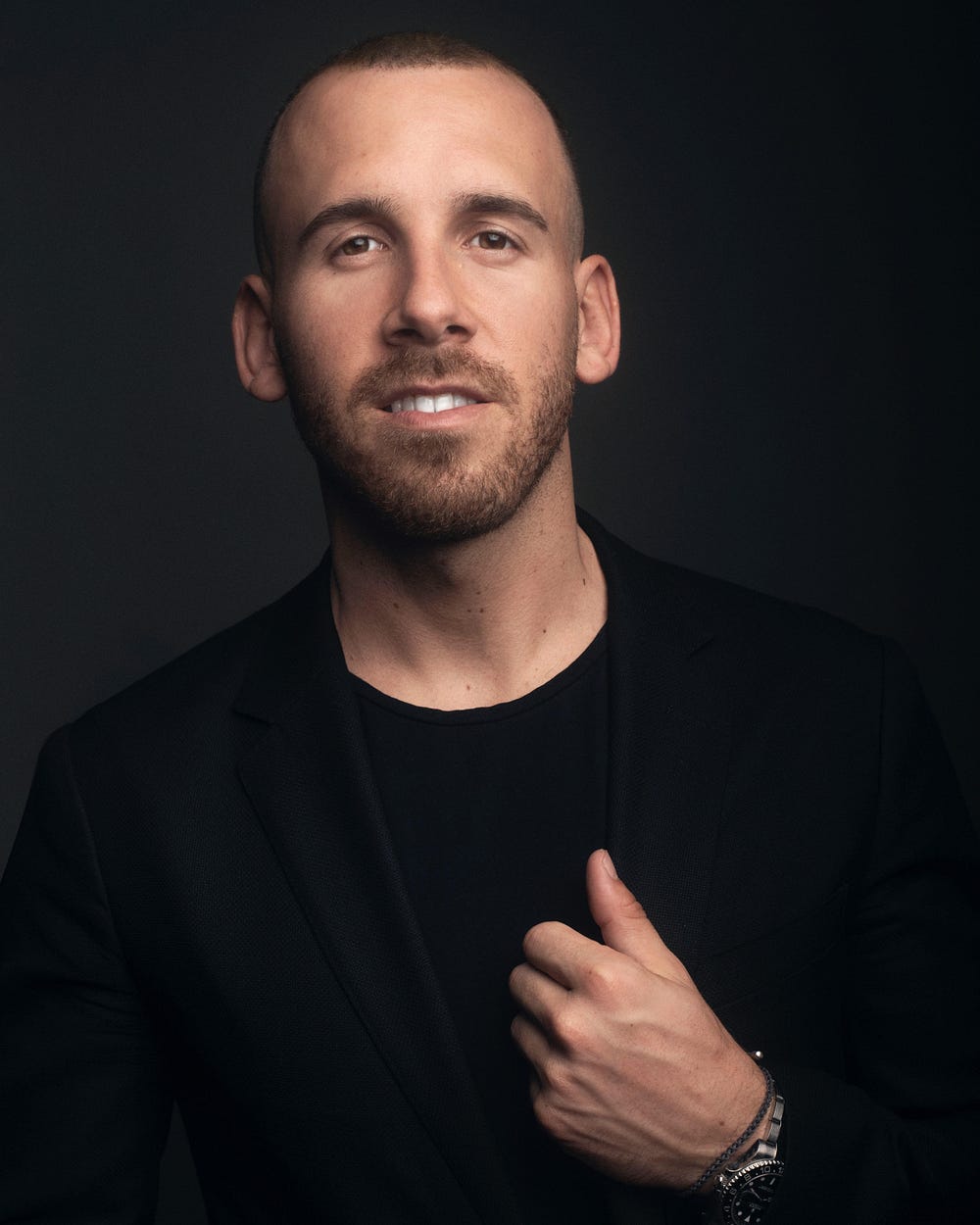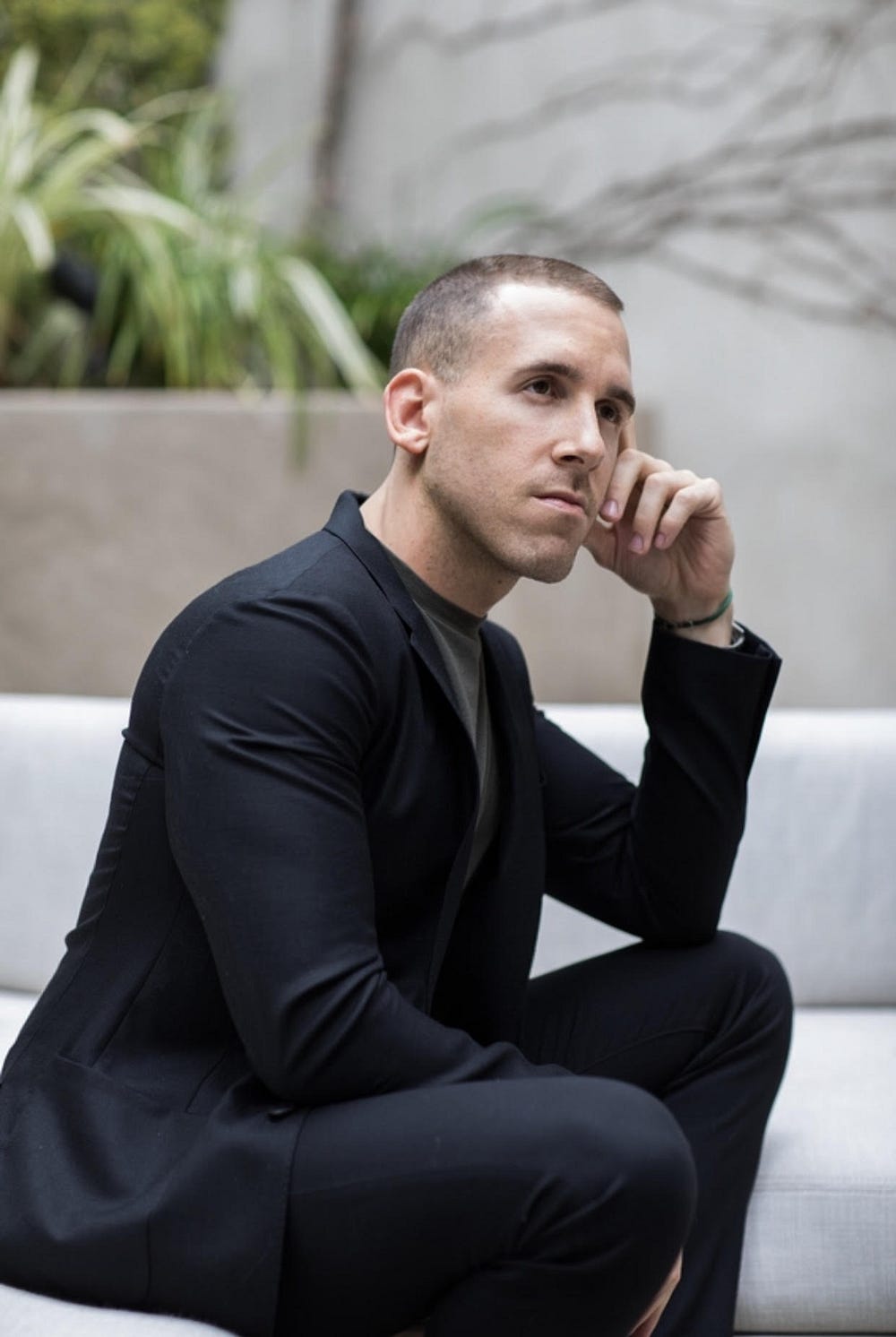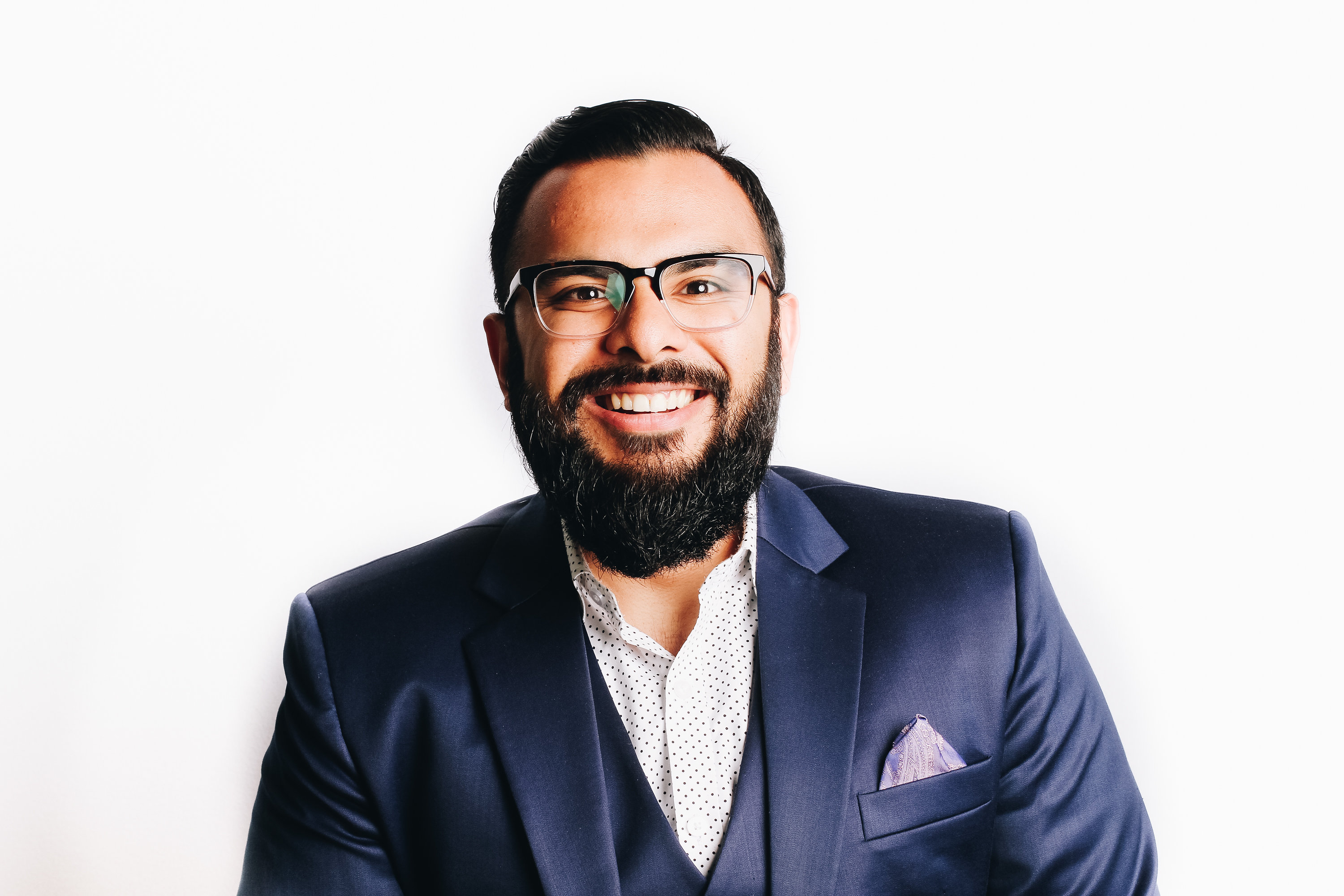As a part of my interview series with prominent medical professionals about “How To Grow Your Private Practice” I had the pleasure of interviewing Dr. Jonathan Leary.
First and only Concierge Wellness Doctor who is changing the face of standard healthcare! Dr. Leary is globally known for working with some of the most high profile families in the world, A-list celebrities and professional athletes. He has been on The Doctors TV show and has contributed to Angeleno Magazine, Beverly Hills Lifestyle Magazine, GQ, and Men’s Health as a health & wellness expert! Furthermore, he was recently added to Delta’s corporate speaking panel, held wellness retreats in the south of France and opening recovery lounges across the world.
Dr. J. holds a B.S. in Kinesiology with a concentration in Exercise Science form the University of Rhode Island (2011) and a Doctorate in Chiropractic Medicine at Southern California University of Health Sciences (2015.)

Can you tell our readers a bit about your ‘backstory”?
I knew that I wanted to work in healthcare at a very early age. But the journey from that point to where I am today was a very circuitous and interesting one. Working and volunteering in hospital settings through high school and college was a big wake up call that almost scared me out of the industry. I knew that the type of care that I wanted offer was very different than what I was seeing, but had no idea how to go about offering that care, or if it was even possible to do so. What I did know was that I did not want medication and surgery to be my first intervention — except in the case of emergencies — and that there had to be better and safer solutions.
Which is why I decided to pursue a doctorate program in Chiropractic Medicine, and spent years creating a business plan centered around holistic and preventive wellness. I opened my practice the moment I received my license to be a practitioner. I knew that in addition to working extremely hard, I would have to stay true to my philosophy of what I wanted to accomplish as a doctor. So I coined the term Wellness Doctor, and created a practice with an alternative medical blend of functional medicine, chiropractic, physiotherapy, and Chinese medicine. And within a few months word of mouth about the success I was having with my patients traveled quickly, and I was full booked with a waitlist. Three years later, that is still the same case.
Four pillars have influenced the growth of my practice. First, I knew that I wanted to give back, so I started volunteering annually in Peru, treating patients in underprivileged areas and in orphanages. Second, I wanted to educate, so I appeared on the national television show ”The Doctors” to talk about alternative therapies and started speaking at conferences like Delta’s, where I spoke about improving health and productivity while traveling. Third, I knew I wanted to scale my practice and offerings globally, so I started doing wellness retreats all over the world.
And lastly, I knew that as much as I loved my practice I knew I was not going to be able to change healthcare seeing one patient at a time. This fourth pillar is what led to my latest endeavor, Remedy Place. Remedy Place is a new type of health club that is normalizing preventative care, creating a holistic antidote to all stressors we run into on a regular basis, and pioneering a new way to delivering this level of care. Our first location is launching in Los Angeles in 2019 and then from there we plan to roll them out first nationally and then globally. Our end goal is to create a big enough platform to educate and create a more health confident world.
What made you want to start your own practice?
I saw a healthcare system that I did not admire, and I knew that it needed to be changed. From the moment I started school I knew that I wanted to create something unique and true to my vision. Between seeing the gap of what was needed in the healthcare industry, having a plan and solution that I saw so vividly, and knowing that I was willing to hustle, it I felt as though I had no other option but to start my own practice, and I was obligated to do so.
Managing being a provider and a business owner can often be exhausting. Can you elaborate on how you manage both roles?
Due to the fact that my practice is 100% mobile and that I am a one-man team this has actually been pretty easy. With modern apps and software, I am always able to manage my company efficiently. That being said, time management is everything! I have everything from patients’ appointments, administrative work, and brainstorm sessions to my workouts, meditation, and self-care all blocked out in my calendar. It took some time to learn how to really maximize my time, but the moment I found the balance and clarity of structuring my patient time, business time, personal time, and my health it has been pretty smooth.
As a business owner, how do you know when to stop working IN your business (maybe see a full patient load) and shift to working ON your business?
Time is our most valuable asset, and as I mentioned above it is all about time management. I have a certain amount of slots open per day for patients, one to two hours a day to work on my business, and then two hours to focus on my health. Everything is locked in my schedule and I follow it very strictly.
From completing your degree to opening a clinic and becoming a business owner, the path was obviously full of many hurdles. How did you build up resilience to rebound from failures? Is there a specific hurdle that sticks out to you?
One thing they don’t teach while studying to be a doctor is business. Being a great doctor is one thing, but once you open a practice, you are also a businessperson. So trying to find a way to strike the balance between being the best doctor I can be while also being an entrepreneur (who at first had no concept of how to start a business) was quite a challenge. Through a lot of trail and error, I learned that it was ok to fail, and not the end of the world if I did. Funny enough, the more uncomfortable I felt and the more hurdles I was exposed to, the more my career grew. So as I continued, I got used to be pushing the limits and I made sure I was always slightly uncomfortable to keep me progressing.
What are your “5 Things You Need To Know To Grow Your Private Practice” and why?
1.) Make sure you love what you do
Having a passion and being able to live that passion every day is the most fulfilling feeling in the world, and this shows up in all sorts of unexpected ways. When you are passionate about what you do, you’re going to gain traction, and after that, nothing can slow you down.
2.) Be innovative!
Think about how you are different and why someone should go to you verse another doctor. Most successful companies always fill a gap in the market by doing something different, and a private practice is no exception.
3.) Lead by example
If you are a health care professional you need to set a positive precedent to establish your credibility. How are you able to give someone health advice if you don’t follow it yourself? It is our duty to practice what we preach and be a role model for our patients and the people around us.
4.) Work smarter and work harder than anyone around you.
It is all about how badly you want success. If you are willing to devote the time, hustle, and continue to work hard with good intentions, good things will come.
5.) Be Likable
People are attracted to genuine individuals, positive intentions, and people who truly care. In this industry, you need to gain your patients’ trust, and it is imperative to make sure that seeing you is the highlight of their day. Make sure to leave a positive impression with every encounter. This is how you retain patients and get direct patient referrals.

Many healthcare professionals struggle with the idea of “monetization”. How did you overcome that mental block?
To be totally honest, I don’t really think about it. I have found that when you follow your passion and truly love what you do the money comes along one way or another. Our time is extremely valuable and we all deserve to make a good living from the work we do. When I work with patients who can afford to pay me I receive my normal rates, and then there are times that individuals who cannot afford me but truly need my help, with whom I work pro-bono. My volunteer work — which I block out two weeks of the year for — also helps me fulfill my altruistic inclinations. At the end of the day as long are you’re looking out for the best interest of your patients ahead of your bank account, I think you’ll be all right.
What do you do when you feel unfocused or overwhelmed?
I listen to my mind and body. Every day, I make a point to take a step away, clear my head, and focus on my health. Stressors will never go away, and the only thing we can control is how we deal with those stressors. I know that my health and consistently prioritizing healthy choices has a ripple effect into every aspect of my life. The more I work out, eat healthy, and reserve time to mediate and reflect, the more I can handle life.
None of us are able to achieve success without some help along the way. Who has been your biggest mentor? What was the most valuable lesson you learned from them?
I am lucky enough to say that each and every person in my life is my mentor. From my patients, to my friends, to my business partners, each of them inspires me. It is so important to be surrounded with people who make you better. The whole point of allowing someone to enter your life is to have a positive exchange. I have people that push me mentally, physically, and business-wise, and other people who make me happier, make me laugh, or enhance my life. You only get one life and your time is so valuable, I make sure to utilize it the best way possible, including spending it with the right people.
What resources did you use (Blogs, webinars, conferences, coaching, etc.) that helped jumpstart you in the beginning of your business?
Outside of reading, attending conferences, and learning by trial and error the best resource that I had to jumpstart my practice was my patients. I can’t say enough how much my patients have influenced me. I am fortunate enough to treat some of the most brilliant business people in the country, and as I helped them through their health journeys they have wanted to return the favor and helped teach and guide me. As I mentioned, doctors tend to not be the best businessmen. So learning from leaders in other industries how to run a business gave me a fresh perspective on how to run and grow my businesses.
What’s the worst piece of advice or recommendation you’ve ever received? Can you share a story about that?
The worst piece of advice that I ever received was that my goals and dreams were too big and that I had to be more realistic. I have been told this multiple times by different people throughout my life. Although I know they had good intentions, it did slow me down in pursuing some of my projects. I honestly know and truly believe that possibilities are endless, especially when you are pursuing your passion. If you are willing to put everything on the line and work your ass off no dream is to big.
Please recommend one book that’s made the biggest impact on you?
Thrive, of course!
Where can our readers follow you on social media?
Instagram Handle: @drjonathanleary
Youtube: https://youtu.be/J2NXScRCVzo

For other incredible interviews, please check out our podcast: Healthcare Heroes.
A special thanks to Dr. Leary again! The purpose of this interview series is to highlight the entrepreneurs, innovators, advocates, and providers inside Healthcare. Our hope is to inspire future healthcare providers on the incredible careers that are possible!
Stay in the loop — Follow NPHub to get the latest updates when we post new interviews: Facebook, Instagram.


